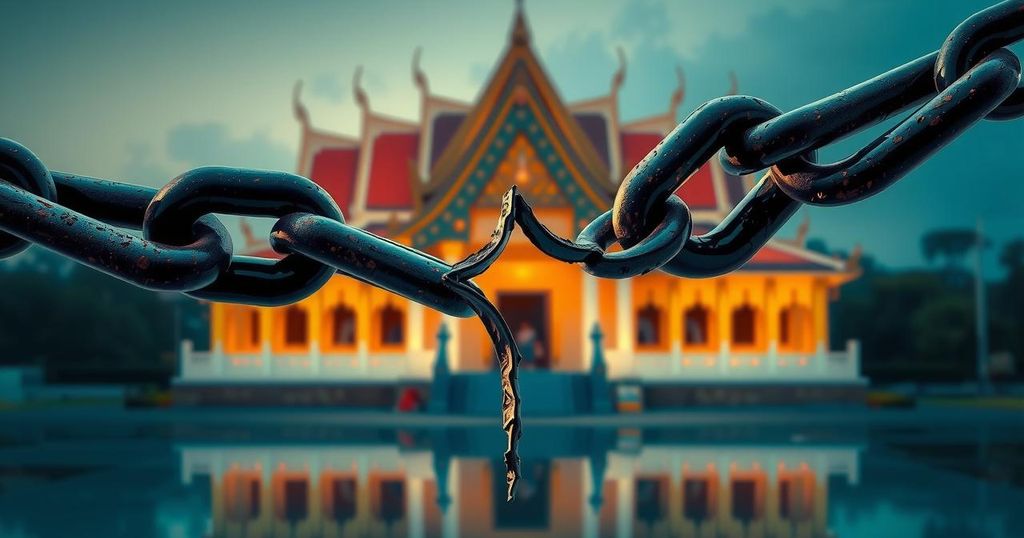The U.S. implemented visa sanctions on Thai officials for deporting Uyghurs to China, a decision condemned by international human rights advocates. Secretary Rubio reiterates concerns over genocide and urges global opposition to similar deportations, while Thai officials acknowledged the pressure from China that influenced their actions. Rushan Abbas hailed the sanctions as accountability measures against complicity in forced deportations.
On March 14, 2025, U.S. Secretary of State Marco Rubio announced visa sanctions against Thai officials linked to the deportation of 40 Uyghurs back to China. The Uyghurs had previously escaped persecution in China and were detained in Thailand since 2014. This action received criticism from the U.S., European Union, United Nations, and various human rights organizations, highlighting concerns over potential torture faced by the deported individuals upon their return to China.
The sanctions specifically target Thai officials deemed responsible for or complicit in the forced return of Uyghurs. Rubio emphasized the ongoing genocide and violations of human rights against Uyghurs in China, urging all nations to refrain from forcibly returning individuals to China. Additionally, family members of the implicated officials may also face travel bans to the U.S.
Details on the number of officials impacted by the visa bans remain undisclosed, as the State Department typically does not disclose names due to privacy laws. Since 2021, the U.S. has classified the persecution of Uyghurs by China as genocide, accusing the government of torture and other severe human rights abuses, which Beijing denies, asserting that their actions in Xinjiang are developmental in nature.
This incident marks a rare diplomatic strain between the U.S. and Thailand. After the Uyghurs were deported, American diplomats offered to resettle them in the U.S. or other countries. However, the Thai Vice Foreign Minister acknowledged that Thailand faced pressure from China, prompting the deportation to avoid repercussions that could affect Thai citizens.
Rubio previously indicated confidence in leveraging the strong U.S.-Thailand relationship to find a diplomatic solution to protect the Uyghurs. Rushan Abbas from the World Uyghur Congress expressed support for the visa bans, viewing them as a necessary step to hold accountable those aiding in the forced deportations of Uyghurs, warning that such complicity carries severe consequences for governments.
For Uyghurs, being forcibly sent back to China means facing life-threatening dangers, including torture and forced labor, emphasizing the importance of safeguarding their rights against international complicity in these actions.
U.S. sanctions against Thai officials signal a strong stance against the deportation of Uyghurs to China, which raises severe human rights concerns. The call for global intervention highlights the potential consequences for countries enabling such actions. The ongoing situation underscores the importance of international cooperation to protect vulnerable populations and holds torturers accountable, fostering a proactive approach in addressing human rights violations.
Original Source: www.benarnews.org






